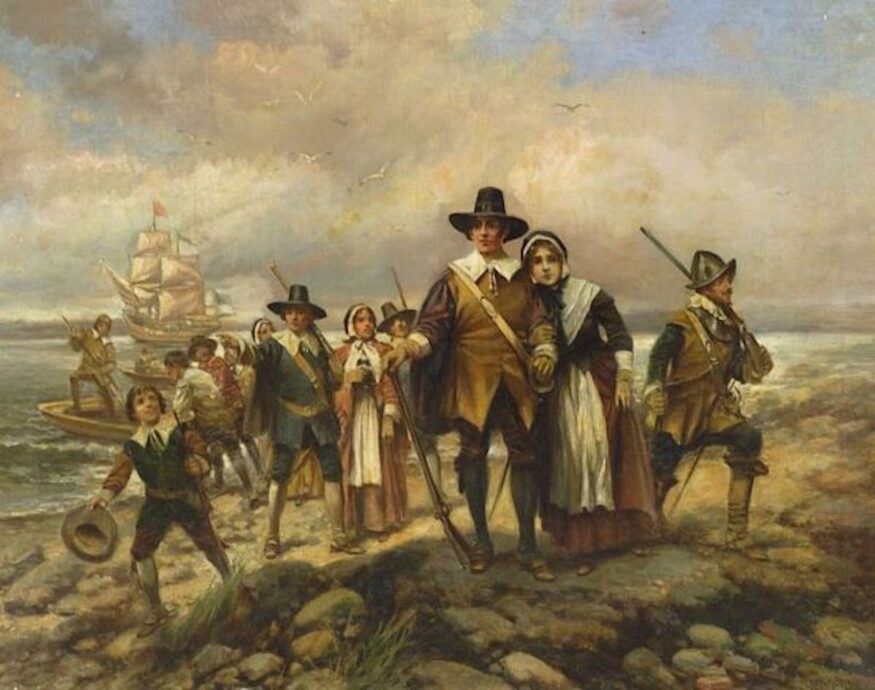
In America, each year in November we celebrate our national holiday called Thanksgiving.
Every school child learns the story of the courageous Pilgrims who set sail on the Mayflower from Europe, braving the elements for two months before arriving in Plymouth, Massachusetts in November 1620. They came seeking a New World, religious freedom, and a better life.
A year later, the pilgrims celebrated God’s gracious gifts with prayer, thanksgiving, and a special feast. The tradition continued, and in 1863 President Abraham Lincoln declared Thanksgiving a national holiday. The date was set as the fourth Thursday in November.
The timing of Lincoln’s Proclamation was significant, being delivered during the height of the bloody Civil War. Nevertheless, Lincoln called all Americans to prayer with a message of optimism and genuine thankfulness, reminding them that even in the midst of dark days there is much to be thankful for.
The Proclamation began:
The year that is drawing towards its close has been filled with the blessings of fruitful fields and healthful skies. To these bounties, which are so constantly enjoyed that we are prone to forget the source from which they come, others have been added, which are of so extraordinary a nature, that they cannot fail to penetrate and soften even the heart which is habitually insensible to the ever watchful providence of Almighty God.
As the Pilgrims journeyed in search of the New World, Scripture reminds us that as Christians our journey through life on this earth is also one as sojourners (those who stay somewhere temporarily) and pilgrims (those on a journey to a better, sacred place).
But you are a chosen generation, a royal priesthood, a holy nation, His own special people, that you may proclaim the praises of Him who called you out of darkness into His marvelous light . . . Beloved, I beg you as sojourners and pilgrims . . . that when they speak against you as evildoers, they may, by your good works which they observe, glorify God . . . (I Peter 2:9, 11-12)
Hebrews 11 outlines many heroes of the faith, concluding in verse 13:
These all died in faith, not having received the promises, but having seen them afar off were assured of them, embraced them and confessed that they were strangers and pilgrims on the earth.
Despite the mounting troubles and distress in our world today, the message throughout Scripture is one of hope—of a better day coming when there will be no more sorrow, sickness, war, or death. A message of life eternal.
God encourages us to keep our eyes on what lies ahead:
For our light and momentary troubles are achieving for us an eternal glory that far outweighs them all. So we fix our eyes not on what is seen, but on what is unseen, since what is seen is temporary, but what is unseen is eternal. (2 Corinthians 4:17-18)
Is your journey focused on what lies ahead? Are you a pilgrim?
As we gather this Thanksgiving, may our hearts be filled with thanks for God’s abundant blessings—family, food, friends, another year. Throughout our darkest days we remember that our journey through this life on earth is only a part of our final destiny.
In Christ alone we have this Hope. In Him we give thanks.


Leave a Reply